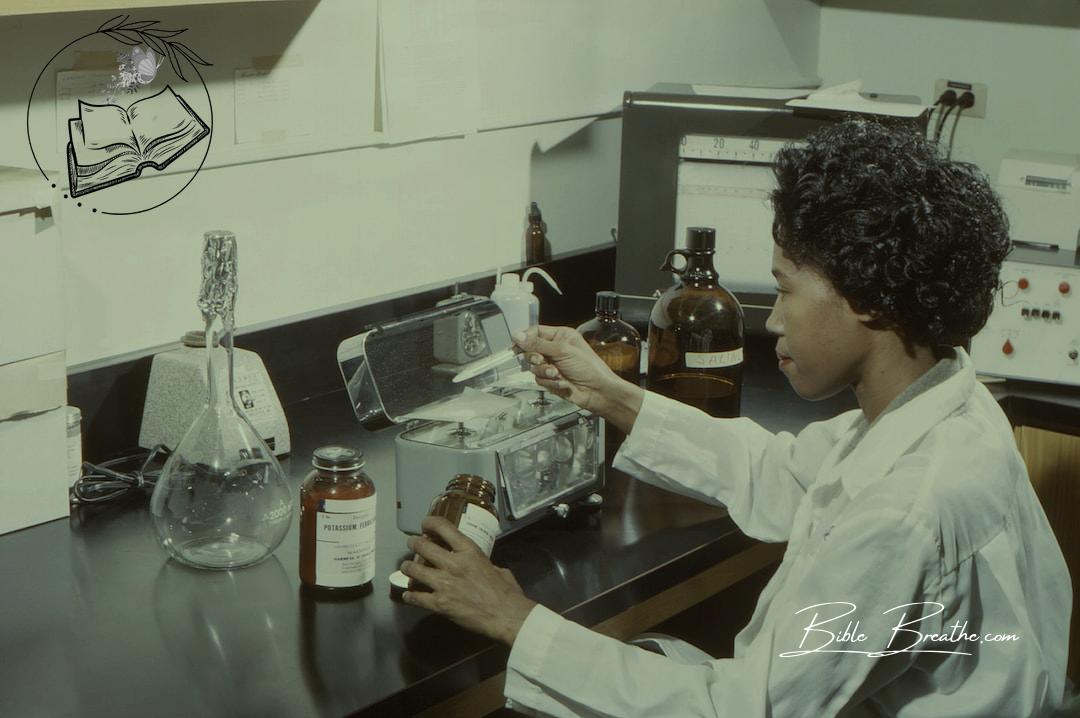Yo, 1 Corinthians 6:19—this verse hits different, fam!
It’s like a shout-out to our bodies being straight-up temples for God.
Think about it: our bodies ain’t just flesh and bones—they’re sacred spaces where the Almighty Spirit chills.
Why’s this verse a game-changer?
‘Cause it’s a wake-up call, reminding us that our bodies aren’t average; they’re legit divine real estate, purchased at a crazy high price—the grace of God.
Imagine, God’s spirit crashing at your place!
How does that change how you treat yourself and others?
You know how temples get respected and kept pure?
That’s the vibe—we gotta treat ourselves like that.
We’re talking about spiritual VIP status here!
1 Corinthians 6:19 is like a GPS, showing us how to honor our bodies and embrace the divine within.
It’s about more than just quoting verses; it’s about owning the truth that God lives within us, guiding our moves and thoughts.
Let’s dive into this verse, understanding how our bodies are temples where God’s spirit hangs out, affecting how we live daily.
“For ye are bought with a price: therefore glorify God in your body, and in your spirit, which are God’s.”
— 1 Corinthians 6:19 (KJV)
Key Takeaways
- 1 Corinthians 6:19 reminds us that our bodies are not our own; they are the Temple of the Holy Spirit. This signifies that we are not just physical beings but vessels of divine sanctity.
- By stating “you were bought with a price,” the verse emphasizes the immense value and spiritual sanctity God places on each of us, referencing the sacrifice Christ made on the cross.
- In our contemporary world, where self-worth can often be based on external achievements or appearance, this verse calls us to ground our identity in the eternal and unchanging value God bestows upon us.
- Applying this scripture means making conscious decisions about our actions, relationships, and lifestyles, acknowledging that we are representatives of the Divine and stewards of the Body as sacred.
- For those striving to lead purposeful lives, 1 Corinthians 6:19 serves as a guidepost, driving home the significance of spiritual well-being, self-respect, and honoring the God’s dwelling within us in all that we do.
1 Corinthians 6:19 KJV: Your Body, God’s Sacred Dwelling
Welcome, friends, to this enlightening journey into understanding the sanctity of our bodies as temples of the Holy Spirit.
In 1 Corinthians 6:19, the Apostle Paul reminds us of the divine truth that our bodies are not our own; rather, they are sacred vessels indwelt by the presence of God.
Let’s dive deeper into this profound revelation.
Verse of the Day:
“What? know ye not that your body is the temple of the Holy Ghost which is in you, which ye have of God, and ye are not your own?” – 1 Corinthians 6:19, KJV
Basic facts of the verse:
| **Attribute** | **Value** |
|---|---|
| Book | 1 Corinthians |
| Chapter | 6 |
| Verse | 19 |
| Christian Bible part | New Testament |
| KEYWORDs | Temple of the Holy Spirit, Body as sacred, God’s dwelling within, Spiritual sanctity, Bought with a price |
| Topics | Sanctification, Spiritual Life |
| Bible Themes | Holiness, Spirituality |
| People | Apostle Paul |
| Location | Corinth |
In grasping the significance of this verse, we recognize that our bodies are not just flesh and bone but are intricately woven as the dwelling place of God’s spirit.
Let this truth guide our reverence for the sacredness of our physical beings, acknowledging that they are bought with the immeasurable price of Christ’s sacrifice.
1 Corinthians 6:19 KJV Cross References
These are some Bible verses related to 1 Corinthians 6:19:
| **Cross Reference Verse (KJV)** | **Verse** |
|---|---|
| 1 Corinthians 3:16 | “Know ye not that ye are the temple of God, and that the Spirit of God dwelleth in you?” |
| 1 Corinthians 6:15 | “Know ye not that your bodies are the members of Christ? shall I then take the members of Christ, and make them the members of an harlot? God forbid.” |
| 1 Corinthians 6:20 | “For ye are bought with a price: therefore glorify God in your body, and in your spirit, which are God’s.” |
| 2 Corinthians 6:16 | “And what agreement hath the temple of God with idols? for ye are the temple of the living God; as God hath said, I will dwell in them, and walk in them; and I will be their God, and they shall be my people.” |
| Ephesians 2:21 | “In whom all the building fitly framed together groweth unto an holy temple in the Lord:” |
| Ephesians 5:30 | “For we are members of his body, of his flesh, and of his bones.” |
| Colossians 1:27 | “To whom God would make known what is the riches of the glory of this mystery among the Gentiles; which is Christ in you, the hope of glory:” |
| 2 Timothy 1:14 | “That good thing which was committed unto thee keep by the Holy Ghost which dwelleth in us.” |
| Revelation 3:20 | “Behold, I stand at the door, and knock: if any man hear my voice, and open the door, I will come in to him, and will sup with him, and he with me.” |
1 Corinthians 6:19: Recognizing Our Sacred Design
Photo modified by BibleBreathe.com. Original photo by Giammarco Boscaro on Unsplash
When you read 1 Corinthians 6:19, “Do you not know that your bodies are temples of the Holy Spirit?”, have you ever paused to ask: What did this mean to the Corinthians?
Why was Paul so fired up?
Historical and Cultural Context
Dive with me into ancient Corinth—a bustling port city that was like the Las Vegas of its time.
This place was poppin’!
Temples, shrines, and idols stood tall, with the Temple of Aphrodite reigning supreme on the Acrocorinth.
But here’s the twist: many of these temples were not just places of worship.
They doubled as centers for hedonistic practices.
In this context, Paul drops a bombshell.
He doesn’t just say, “Avoid those temples.” He says, “You, YOU are the Temple of the Holy Spirit.” Can you imagine the Corinthians’ faces?
It’s like telling someone used to renting run-down rooms that they’re living in a penthouse suite.
Their body as sacred?
Unheard of!
With this declaration, Paul elevated the understanding of the human body from being just flesh and bones to a place of spiritual sanctity.
Remember, in a culture where bodies were often misused, Paul’s message was counter-cultural and radical.
Your body isn’t for misuse; it’s God’s dwelling within.
And that body of yours?
It’s not cheap—it’s bought with a price.
So, what’s the takeaway? In a world, much like ancient Corinth, where bodies are often commodified and devalued, Paul’s words resonate with a timeless truth: We’re not just another face in the crowd.
We’re divinely designed, sacred sanctuaries.
And in recognizing this, aren’t we called to value, honor, and cherish ourselves and others in a profoundly transformative way?
1 Corinthians 6:19: Discovering the Sacred Within Us
Imagine a home, beautifully designed, but you only ever see the exterior.
Now, what if I told you that within, the most treasured King resided?
Your body, my friends, is that exquisite home.
Let’s journey inside and meet its divine resident.
Verse Analysis and Literal Interpretation
- “Do you not know”
- Significance: A rhetorical challenge, urging us to consider something we’ve overlooked or dismissed.
- “that your body is a temple”
- Significance: Our body as sacred, designed for holy purposes.
- Original Language Insight: The Greek “ναός” (naós) refers to the inner sanctuary, the holiest part of the temple.
- “of the Holy Spirit”
- Significance: Our bodies house not just any spirit but the Temple of the Holy Spirit, God’s very presence.
- “who is in you”
- Significance: This isn’t abstract; the Spirit literally dwells within us, emphasizing God’s dwelling within.
- “whom you have from God?”
- Significance: The Spirit is a gift; we didn’t earn or achieve it.
- “You are not your own”
- Significance: We are stewards of our bodies, not the sole proprietors.
- “for you were bought with a price.”
- Significance: We’ve been redeemed, hinting at the Spiritual sanctity of our being.
- Original Language Insight: The term “bought” (ἀγοράζω – agorázō) suggests a cost, reminding us we were bought with a price, referencing Jesus’ sacrifice.
Within the narrative of 1 Corinthians, Paul addresses various moral concerns.
By understanding our body’s sanctity, we grasp the depth of how we should treat it.
Have you ever paused to think, if God chose your body as His temple, how does that change the way you care for it, use it, and value it?
The King isn’t just at the door; He’s made your heart His throne room.
Embrace this truth and live it out!
1 Corinthians 6:19: More Than Just a Verse, It’s a Life Principle
Ever passed by a house and wondered who lived inside?
Now, let’s flip that.
Imagine your body as a house.
1 Corinthians 6:19 asks, “Do you not know that your bodies are temples of the Holy Spirit?” This isn’t just a statement.
It’s a revolutionary perspective, shaking the foundations of how we see ourselves.
Yet, isn’t it fascinating how this notion finds echoes in other religious texts, while also retaining its distinct Christian identity?
Similarities with other religious texts
- Sacred Vessels: The Hindu Upanishads echo the sentiment of the body as sacred, stating that the body is a temple, and the divine resides within.
- Inner Divinity: Sufi teachings in Islam emphasize the innermost spirit as the abode of the divine, resonating with the theme of God’s dwelling within us.
- Spiritual Discipline: Both Buddhist and Christian teachings emphasize maintaining spiritual sanctity through right conduct, given the divine nature of our being.
Differences with other religious texts
- Redemptive Price: 1 Corinthians 6:19 uniquely emphasizes being bought with a price – the sacrifice of Jesus. This idea of redemption is profoundly Christian.
- Indwelling of the Holy Spirit: While many traditions acknowledge a divine essence within, the Christian narrative specifically acknowledges our bodies as the Temple of the Holy Spirit.
- Moral Accountability: The verse not only acknowledges our divine nature but also calls for moral responsibility based on this recognition, setting it apart in its emphasis on ethical living.
Imagine, for a moment, you’re house shopping.
Some houses feel just like buildings, while others resonate like homes.
Similarly, 1 Corinthians 6:19 isn’t just a verse; it’s a reminder that we aren’t just biological entities.
We’re divine residences.
So, the next time you think of a makeover, why not start from the inside out?
After all, isn’t it time we start living like we’re houses of divinity?
Exploring 1 Corinthians 6:19: The Divine Dwelling & Its Modern Significance
Yo, have you ever stood in awe of a beautiful building and thought about its purpose?
1 Corinthians 6:19 is like that awe-striking architecture.
It says, “Do you not know that your bodies are temples of the Holy Spirit, who is in you, whom you have received from God?” Now that’s deep!
But how does everyone see this architectural wonder?
Theological Implications and Modern Interpretations and Misinterpretations:
- Roman Catholicism: They’re dialed into the idea of the body as sacred.
This belief is woven into rituals, with an emphasis on the sanctity of life and sacraments like the Eucharist.
It’s about God’s dwelling within, making every believer a sacred space.
- Eastern Orthodox: For them, it’s all about spiritual sanctity.
The verse underscores the concept of theosis – becoming one with God.
Like a drop in the ocean, our bodies, and souls merge into the Divine.
- Protestantism: They zero in on being bought with a price.
This verse is a call to moral responsibility.
If your body is God’s temple, then how should you treat it?
It’s about stewardship and honor.
- Seventh-day Adventists: They tie in health and diet, seeing the body as a vessel that needs to be cared for.
It’s not just spiritual; it’s about holistic living.
- Mormonism: Here, the focus is on the body’s essential role in attaining divinity.
It’s more than a temple; it’s a tool for eternal progression.
- Jehovah’s Witnesses: For them, respecting the body and abstaining from practices that harm it is crucial.
It’s about purity and preparation for God’s kingdom.
Stepping back, this verse is more than just a declaration.
It’s a divine blueprint in the biblical narrative, emphasizing the intimate relationship between God and humans.
It’s like God handing us the keys to a precious property and saying, “This is yours, but remember its value.”
Contemporary Debates
Today, this verse fuels debates about health, lifestyle, and even political issues.
Tattoos, diets, drugs – where’s the line?
If our bodies are temples, then what renovations, if any, are we allowed?
It’s a question of identity and integrity.
In this age of self-expression and freedom, 1 Corinthians 6:19 challenges us.
To reflect, to respect, and to realize our worth.
Because when you know you’re not just a building but a sacred dwelling, it changes everything.
How will you honor the temple today?
The Divine Blueprint: 1 Corinthians 6:19 Meets Modern Science
Photo modified by BibleBreathe.com. Original photo by CDC on Unsplash
Picture this: an architect meticulously crafting a skyscraper.
Every brick, every beam, masterfully placed.
Now, imagine this structure is not made of concrete, but cells, tissues, and organs.
In 1 Corinthians 6:19, we encounter the profound notion of our bodies as the Temple of the Holy Spirit.
Yet, when faced with the lens of science, how does this spiritual cornerstone hold up?
Today, biologists unravel the body’s marvels, from the neural networks firing in our brains to the genetic codes defining our existence.
The intricate design reveals a structure so precise, it’s awe-inspiring.
But is this not a tangible echo of our body as sacred, a divine blueprint reflecting God’s dwelling within?
Our understanding of the human body has skyrocketed, with technologies revealing our inner workings in real-time.
These discoveries highlight our body’s sanctity not just spiritually but biologically.
In each heartbeat, each breath, do we not witness the fusion of the physical with the spiritual sanctity?
Yet, while science captures the mechanics, it often misses the deeper resonance.
Our bodies, with their inherent complexities, mirror the divine craftsmanship, the very essence of being bought with a price.
It’s a dance between the tangible and the intangible.
Science showcases the body’s wondrous mechanisms, but 1 Corinthians 6:19 delves deeper, inviting us to recognize and respect our bodies as sacred vessels of the divine.
Ponder this: As we push boundaries in medicine, biotechnology, and wellness, how are we honoring the Temple of the Holy Spirit?
Do our pursuits elevate our respect for the body as sacred or divert us from its divine purpose?
Navigating this intersection of science and spirituality is no small feat.
But as you reflect on your own temple, consider this: How will you blend reverence with research, cherishing the miracle of life within you?
Living Sanctuaries: Embracing the Sacredness of 1 Corinthians 6:19 in Daily Life
Imagine walking into a grand cathedral, its walls echoing stories of faith, its structure symbolizing divine majesty.
Now, envision recognizing a similar divine architecture within yourself.
That’s right – you are a living, breathing Temple of the Holy Spirit.
1 Corinthians 6:19 reminds us of our body as sacred, a dynamic abode for the Divine.
Real-Life Implications:
Ever been to a special place where you felt the need to tread softly, speak quietly, and be reverent?
That’s how we should treat our bodies daily, realizing the Spiritual sanctity that resides within.
It’s not just about physical health but also about nurturing our souls, our minds, and our emotional well-being.
Why?
Because this temple has been bought with a price – the highest of prices.
But, how often do we desecrate this temple with negative self-talk, unhealthy habits, or toxic environments?
Recognizing the God’s dwelling within us transforms how we live, influencing everything from what we consume to the company we keep.
How To Apply This Understanding Daily:
- Morning Affirmation: Begin each day acknowledging your worth. Speak words of affirmation, recognizing yourself as the Temple of the Holy Spirit.
- Nutrition and Care: Consider what you eat and drink as offerings to the temple. Will it honor the temple or defile it?
- Mindful Activities: Engage in activities that promote spiritual sanctity, like meditation, prayer, or even a simple walk in nature.
- Guard Your Emotional Space: Be vigilant about the energies you allow in. Surround yourself with uplifting company, music, and literature.
- Evening Reflection: As you wind down, ask yourself: “Have I honored the temple today?” Reflect, learn, and set intentions for the morrow.
It’s time for a shift in perspective.
Instead of viewing your body as merely a physical entity, grasp its divine significance.
And just like you wouldn’t litter in a sacred place, be mindful not to litter your mind, body, or spirit with negativity.
Remember, in this bustling world, you carry a piece of serenity within you – a sacred space, a divine sanctuary.
So, how will you honor this temple today?
Diving Deeper into 1 Corinthians 6:19: The Temple Within Us
Photo modified by BibleBreathe.com. Original photo by Pietro Tebaldi on Unsplash
When we look at the bustling cities with their majestic skyscrapers, it’s awe-inspiring.
There’s a construction far more intricate and sacred than any man-made structure: the human body, our very own Temple of the Holy Spirit.
Probing the Depths:
- What emotions arise when you consider your body as not just a biological construct but a Temple of the Holy Spirit?
- How does viewing the body as sacred impact decisions about how we treat and respect ourselves and others?
- If our body is the place of God’s dwelling within, what responsibilities come with such an honor?
- Reflecting on the phrase bought with a price, how does that reshape perceptions of self-worth and identity?
Real-World Applications:
- Suppose you’re faced with a decision that involves potentially harming your body for a momentary thrill. How would this verse influence your choice?
- In a society overwhelmed by beauty standards and external pressures, how would 1 Corinthians 6:19 redirect your focus?
- If you meet someone struggling with body image, how could this scripture serve as a beacon of hope and validation for them?
News Through the Lens of Scripture:
- Recent News: Global Fitness Trends and the Race for Perfection – In a world obsessing over physical perfection, how does 1 Corinthians 6:19 redefine what true health and beauty are?
- Recent News: The Rise of Mental Health Awareness – As we become more aware of the importance of mental well-being, how does this verse emphasize the sanctity of the mind as part of our body, God’s temple?
Life’s not just about living, but living with purpose.
As we ponder 1 Corinthians 6:19, let’s continually recognize the divine within us, treating ourselves and others with the reverence fitting for a temple.
This isn’t just scripture; it’s a life-guiding principle, urging us to see beyond the physical, into the spiritual.
Frequently Asked Questions (FAQs) About 1 Corinthians 6:19
What does 1 Corinthians 6:19 convey about the sanctity of the human body as a temple?
1 Corinthians 6:19 emphasizes that the human body is a temple of the Holy Spirit.
This conveys the sanctity and significance of the physical body, highlighting the indwelling presence of God.
It encourages believers to honor and care for their bodies, recognizing them as sacred spaces for the manifestation of God’s Spirit.
How can believers honor God with their bodies, as instructed in 1 Corinthians 6:19?
Believers can honor God with their bodies by recognizing them as temples of the Holy Spirit.
This involves practicing self-control, avoiding immorality, and making choices that promote physical and spiritual well-being.
Cultivating habits of gratitude, stewardship, and pursuing holiness are practical ways to honor God with the bodies He has entrusted to believers.
Are there other Bible verses that complement the message presented in 1 Corinthians 6:19 regarding the body as a temple?
1 Corinthians 6:19 emphasizes the body as God’s temple.
Complementing verses include 1 Corinthians 3:16-17, stressing the sanctity of believers collectively as God’s temple, and Romans 12:1, urging presenting one’s body as a living sacrifice.
These verses collectively highlight the sacredness of the believer’s body.
In what ways does understanding 1 Corinthians 6:19 influence our perspectives on physical and spiritual well-being?
1 Corinthians 6:19 teaches that believers’ bodies are temples of the Holy Spirit.
Understanding this impacts perspectives on physical well-being by promoting a sense of stewardship and respect for the body.
It also influences spiritual well-being, emphasizing the connection between physical and spiritual health in the context of a vibrant Christian life.
Can you provide insights into the cultural and historical context surrounding the Corinthians and the message of 1 Corinthians 6:19?
The cultural context of Corinth influenced the message of 1 Corinthians 6:19.
Corinth was known for its indulgent lifestyle, including temple prostitution.
The admonition about the body as a temple resonates with the cultural awareness of the body’s significance.
It challenges Corinthian believers to honor their bodies, contrasting the prevailing cultural norms with the sanctity of the body in the Christian context.




